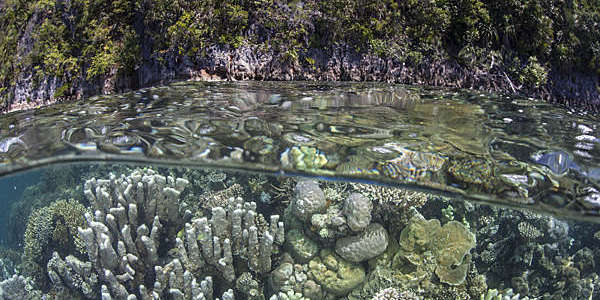Biodiversity ensures life. It creates the air that we breathe, the food that we eat, the medicines that save lives and the water we so badly rely on. But over-exploitation of land and species, intensive farming, pollution and climate change have eroded biodiversity to the point that we are now faced with natural disasters, food and water shortages, zoonoses and more. Strengthening biodiversity, therefore, is fundamental to sustainable development.
Recognizing this, ISO has just formed a committee of experts from all over the world dedicated to developing standards that help organizations do just that. ISO/TC 331, Biodiversity, will be chaired by AFNOR, ISO’s member for France, and intends to provide a holistic approach by bringing together, and expanding on, existing national and international expertise to address biodiversity issues.
Committee Manager Caroline Lhuillery said the work of ISO/TC 331 will help to encourage organizations, including government and business, to embed biodiversity issues into their strategies, decision making and actions.
“Some three-quarters of the world’s land and two-thirds of the marine environment have been significantly modified by human intervention, creating real dangers for our populations,” she said.

“The desire is to turn the tables to create a healthier relationship between our economies and our ecosystems, a relationship that encourages the preservation of biodiversity while creating opportunities for sustainable development. A global approach is needed in order to achieve this.”
Future standards from the committee will include standardized terms and definitions to be used globally, methodologies for impact analysis, frameworks for defining strategies and action plans, monitoring and reporting tools, and more. ISO/TC 331 also intends to develop guidelines on specific biodiversity issues such as ecological engineering, nature-based solutions and relevant technologies.
The new committee’s outputs will be useful to national and local authorities, businesses and other relevant organizations to improve their current activities related to biodiversity and facilitate the development of new products and initiatives.
Use of the future standards will enable organizations to directly contribute to the United Nation’s 17 Sustainable Development Goals (SDGs), particularly SDG 13 (Climate Action), SDG 14 (Life below Water) and SDG 15 (Life on Land). The committee’s work will also indirectly benefit the remaining SDGs, as all human activities depend on biodiversity.
Those interested in contributing to ISO/TC 331 should contact their national ISO member.
